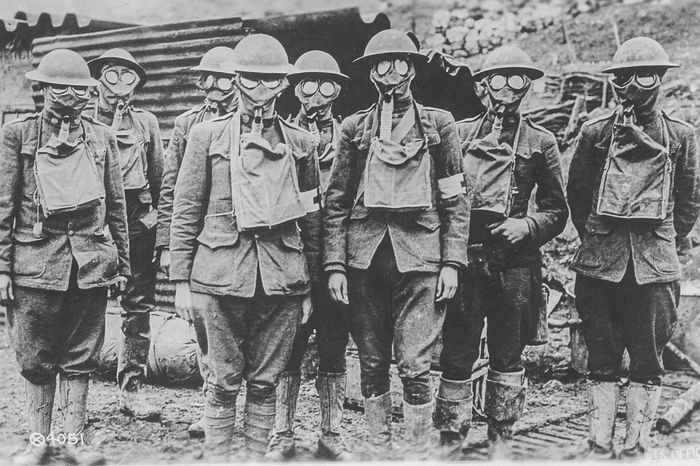Ryan Murphy once made horror hot. What happened?
Oliver Bevan explores Ryan Murphy’s career from Glee and Scream Queens to his recent controversial adventure into true crime with Netflix’s Dahmer

Ryan Murphy is a name that pops up alongside many popular shows of our adolescence: Glee, American Horror Story and Scream Queens — each with its own loyal cult following. Glee’s innocent story of high school misfits who bond over a shared love of music touched the hearts of thousands. But what the American television writer is best known for is his sophisticated approach to horror.
The anthology series American Horror Story, affectionately referred to as AHS by fans, features role-jumping actors in different circles of hell, from a mental asylum to a murder hotel. The series stood at the centre of the ‘edgy’ 2014 Tumblr aesthetic; you spy someone on Sidge sporting Docs and dungarees – they’ve probably binge–watched American Horror Story at some point. And AHS is no less stylish than its following. The third season, which centred around a witch’s coven in New Orleans, is particularly iconic with its all-black outfits and excessive smoking, its white colonial mansion and Emma Roberts’ witty one-liners, which have since found themselves memorialised in GIFs: “Surprise b*tch, I bet you thought you’d seen the last of me”.
“A tacky move to dramatise our age of political polarisation”
Murphy’s success with American Horror Story cannot be understated. It was one of the first projects to turn away from jump-scare movies and adapt horror into a slow burning television series, hard to grasp given horror’s TV presence today. Before, the genre was crowded with slasher films like Saw, Scream, and Halloween – films that overlook the early elegance of Dracula and Psycho. Murphy’s beautiful cinematography and character–driven storylines breathed style back into horror without squandering its fear factor.
So what happened? Murphy’s projects since have become tainted by a macabre interest in real life trauma and insensitive political engagement, turning away from his beloved vision of red–blooded American horror. AHS’s seventh season surrendered any glimmer of charm to loose political references to the 2016 US election, from which most viewers were no doubt trying to escape at the time. It was a tacky move to dramatise our age of political polarisation into a feverish mess with little social commitment, especially since Murphy had never before gestured to politics in his art. The only thing that was scary about that season was the writing.
“The series should not have been made, full stop”
More recently, we have seen Murphy’s controversial descent into true crime, with dramas about prolific serial killers. The Assassination of Gianni Versace tells the story of the titular fashion designer’s sadistic serial killer, but the series appears less like a murder spree and more like a Versace catwalk itself. It’s probably not a good thing that I enjoy rewatching it for the sunny Floridian setting and Penelope Cruz.
Then, we have the Netflix original series, Dahmer. The series should not have been made, full stop. Real life families are made to relive trauma, which is exploited for entertainment value. Rita Isbell, the sister of one of Dahmer’s victims, gave an emotional speech in court in front of the killer himself in 1992; Netflix recreated the news footage of this speech down to a tee. Isbell says that she was never contacted about the show. The Devil works hard, but Ryan Murphy works harder. Some scenes even verge on being funny rather than serious, such as the crude idea to have Dahmer offer his neighbour, played by comedian Niecy Nash, a sandwich filled with human remains. Let’s not even discuss the scene of Dahmer drunk dancing. Murphy’s writing has always pushed the boundaries, but this time he has clearly gone too far.
Murphy should be celebrated for the first few seasons of AHS, in which he set the benchmark for horror series everywhere. Fashion and fear. Sex and scare. But in doing so, he also set the benchmark for himself. Let’s hope that in the future we see him move further away from real life – there’s enough horror there already – and back to his nightmarish fantasies.
 Comment / Cambridge students are too opinionated 21 April 2025
Comment / Cambridge students are too opinionated 21 April 2025 Interviews / Meet the Chaplain who’s working to make Cambridge a university of sanctuary for refugees20 April 2025
Interviews / Meet the Chaplain who’s working to make Cambridge a university of sanctuary for refugees20 April 2025 News / News in brief: campaigning and drinking20 April 2025
News / News in brief: campaigning and drinking20 April 2025 Comment / Cambridge’s tourism risks commodifying students18 April 2025
Comment / Cambridge’s tourism risks commodifying students18 April 2025 Comment / Cambridge’s gossip culture is a double-edged sword7 April 2025
Comment / Cambridge’s gossip culture is a double-edged sword7 April 2025






